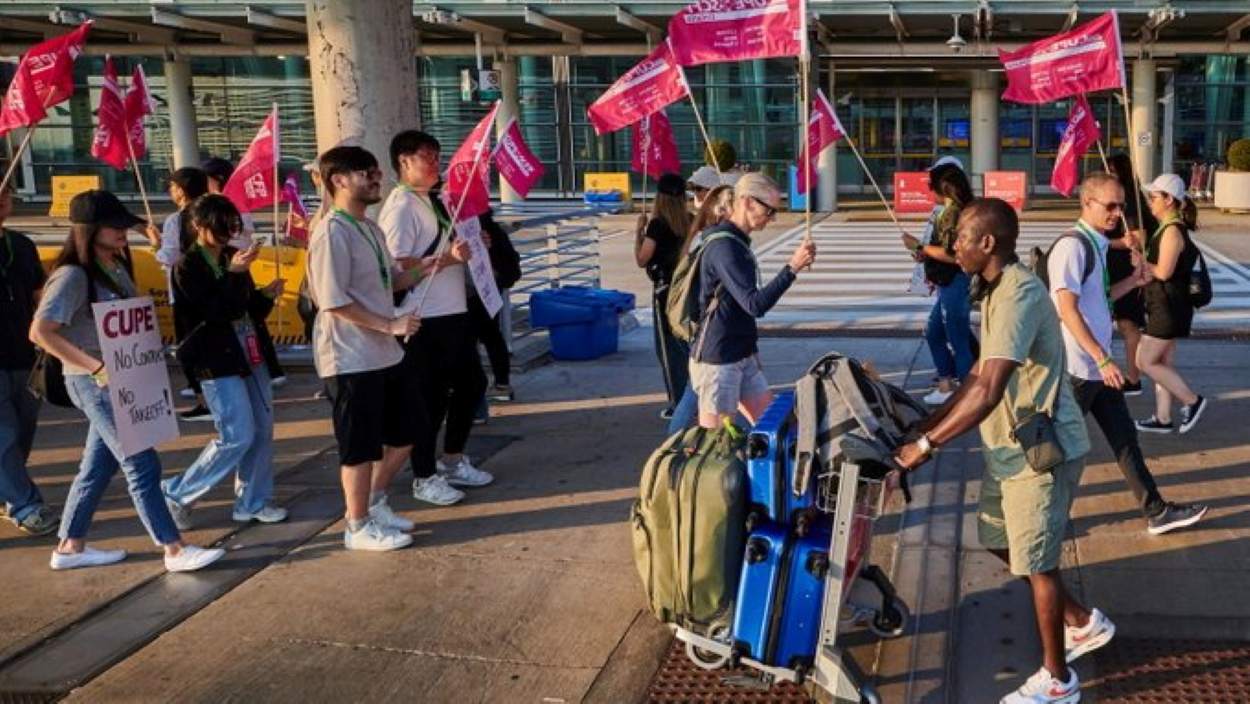On August 17, 2025, Air Canada suspended its plans to resume limited flights due to a strike involving approximately 10,000 flight attendants. The strike, which began on Saturday, continued despite an order from the Canada Industrial Relations Board (CIRB) to end it, as reported by Reuters. The airline, which affects 130,000 passengers daily, now intends to resume flights on the evening of August 18.
The Canadian Union of Public Employees (CUPE), which represents the cabin crew, rejected the directive from the Canada Industrial Relations Board (CIRB) and Labour Minister Patty Hajdu’s order for binding arbitration under the Canada Labour Code. CUPE is calling for fair negotiations, citing insufficient wage offers and unaided groundwork. They also criticised CIRB chairwoman Maryse Tremblay for her previous ties to Air Canada, viewing it as a conflict of interest.
Air Canada flight attendants said they will remain on strike and spurn a government return-to-work order, calling it unconstitutional https://t.co/ZZVQNPCRoO pic.twitter.com/Fw3a9bOUQR
— Reuters (@Reuters) August 17, 2025The strike, halting over 700 flights, has disrupted summer travel globally, exacerbated by U.S. tariffs. Air Canada strike chaos continues,” reflects worker frustration. Air Canada’s offer of $87,000 average salaries for senior attendants by 2027 was deemed “below inflation” by CUPE.
#BREAKING: Air Canada union says flight attendants will continue strike, defy governmenthttps://t.co/a4SQ7wAkwn
— CP24 (@CP24) August 17, 2025The ongoing strike, defying government intervention, could set a precedent for labour disputes in Canada, impacting Air Canada’s reputation and the travel industry. With the airline serving 180 cities, prolonged disruptions may strain Canada’s economy and international connectivity, prompting calls for renewed negotiations to resolve the deadlock.
Air Canada’s strike disruption highlights labour tensions and economic challenges, affecting global travellers and Canada’s aviation sector.






